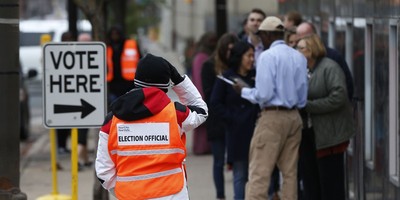In the wake of Mitt Romney's loss, many Republicans say the GOP must make far-reaching changes to be competitive in future elections. White voters are a smaller and smaller part of the electorate, they point out, while Latinos and other minorities are growing as a percentage of the voting public. Unless the Republican Party reinvents itself to appeal to those voters, the argument goes, the GOP can get used to being out of power.
There's something to that. The electorate is changing, and the Republican Party needs to keep up with the times. But the more fundamental answer to the GOP's problems could be much simpler than that. To win the next time, Republicans need to find a really good candidate. Just listen to the masterminds of Barack Obama's victories in 2008 and 2012.
On Thursday afternoon, the Obama campaign held its last conference call for reporters. Toward the end of the call, the three top officials in Obama's re-election effort -- David Axelrod, Jim Messina and David Plouffe -- were asked what will happen to the mighty Obama campaign now. What next for the enormous campaign infrastructure, with its massive databases and voter profiles? Will it go to a new candidate?
"You can't just transfer this," said senior adviser Plouffe. "People are not going to spend hours away from their families, and their jobs, contributing financially when it's hard for them to do it, unless they believe in the candidate."
"All of this, the door knocks ... the contributions made, the phone calls made, were because these people believed in Barack Obama," Plouffe continued. "And so for candidates who want to try and build a grassroots campaign, it's not going to happen because there's a list or because you have the best technology. That's not how this works. They have to build up that kind of emotional appeal so that people are willing to go out and spend the time and their resources and provide their talents because they believe in someone. ... The reason those people got involved was because they believed in Barack Obama. It was a relationship between them and our candidate."
Recommended
Plouffe is right. He and Axelrod and Messina could have created the most awesome campaign machinery in the world, and it would have failed had the candidate not been able to forge an emotional connection with enough voters to win. Obama could do that, especially with blacks and Latinos and young people, but also with a significant portion of white voters.
Mitt Romney, on the other hand, appears not to have excited any big group. Yes, he won the support of 59 percent of white voters, but there are indications that whites actually stayed away from the polls in large numbers. Overall, Romney won fewer votes than John McCain's doomed 2008 campaign.
"The 2012 elections actually weren't about a demographic explosion with nonwhite voters," writes analyst Sean Trende of RealClearPolitics. "Instead, they were about a large group of white voters not showing up. ... The reason this electorate looked so different from the 2008 electorate is almost entirely attributable to white voters staying home."
Trende is not sure why so many whites didn't vote. Looking only at Ohio, he suggests many did not like Obama but were turned off by Romney, or at least the negative picture of Romney created by Obama's attack ads. So they did nothing on Election Day.
There is much data still to come in from Tuesday; the popular vote figures and exit poll details aren't yet final. But it's fair to say Romney's problems stemmed as much from his failure to appeal to white voters as his failure to appeal to any other voters. He lost because he did not connect to large swaths of the voting population.
That's where finding a great candidate comes in. Romney is an able, accomplished, intelligent and hard-working man, but Republicans knew from the start he was an imperfect candidate. During the primaries, GOP voters tried every alternative possible before finally settling on Romney. He remained a flawed candidate in the general election.
Now, because of Romney's loss, some are urging that the Republican Party completely remake itself. Some argue that GOP lawmakers must support comprehensive immigration reform and change positions on other issues. The answer, they say, is broad, across-the-board change.
But listen to the Obama team. There is a less complicated lesson to this election. Voters want to believe in a candidate. If Republicans find that candidate, they will win.
























Join the conversation as a VIP Member